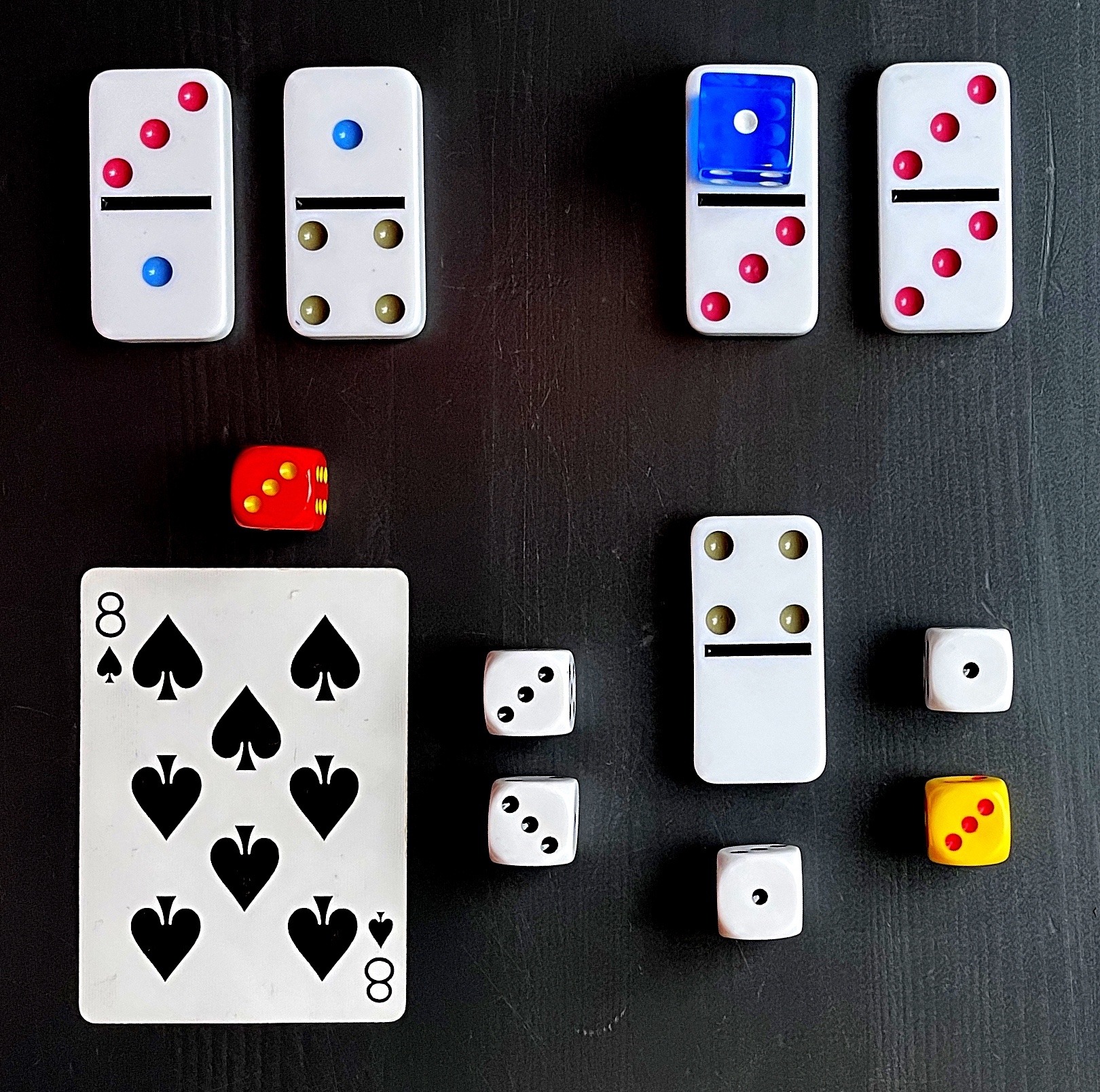
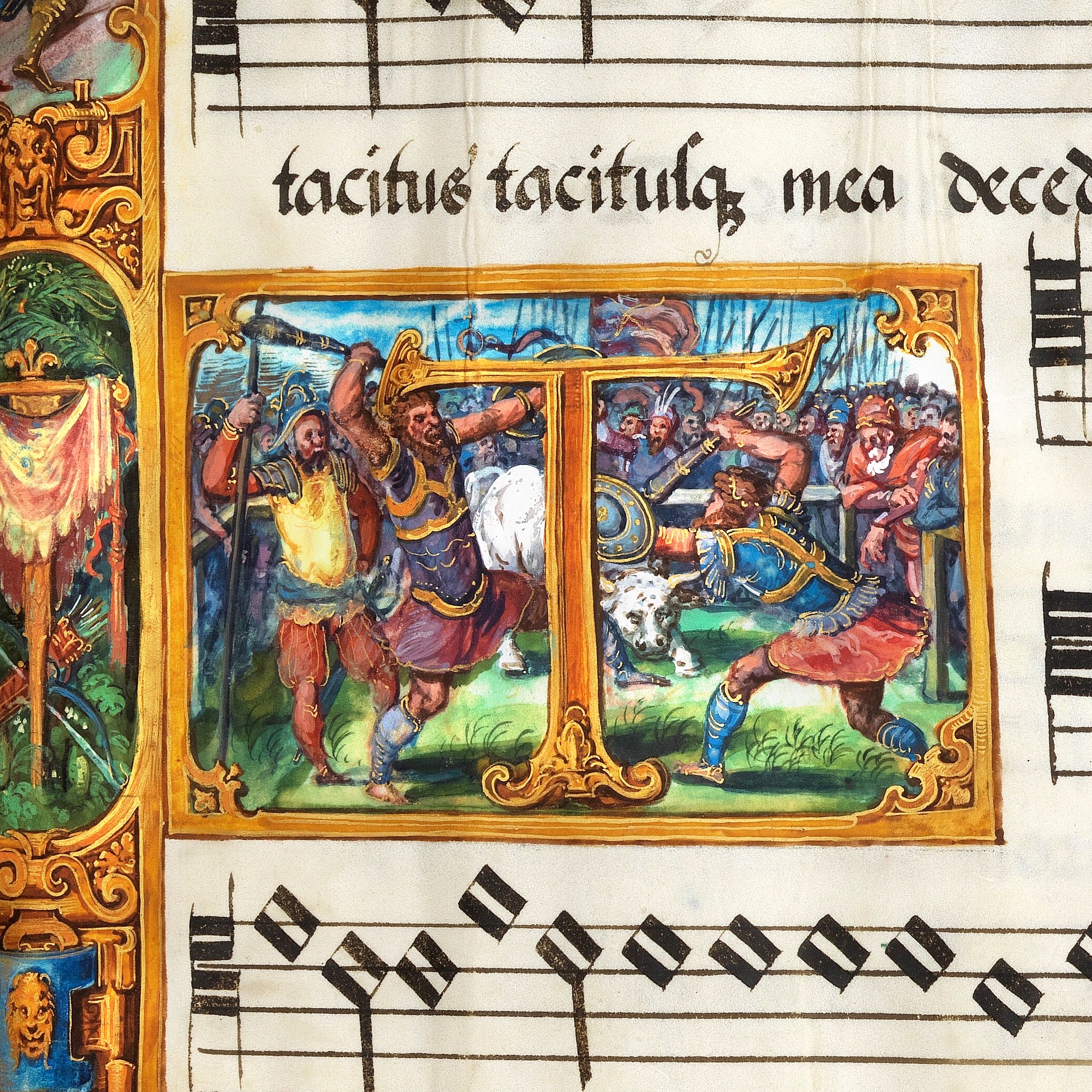


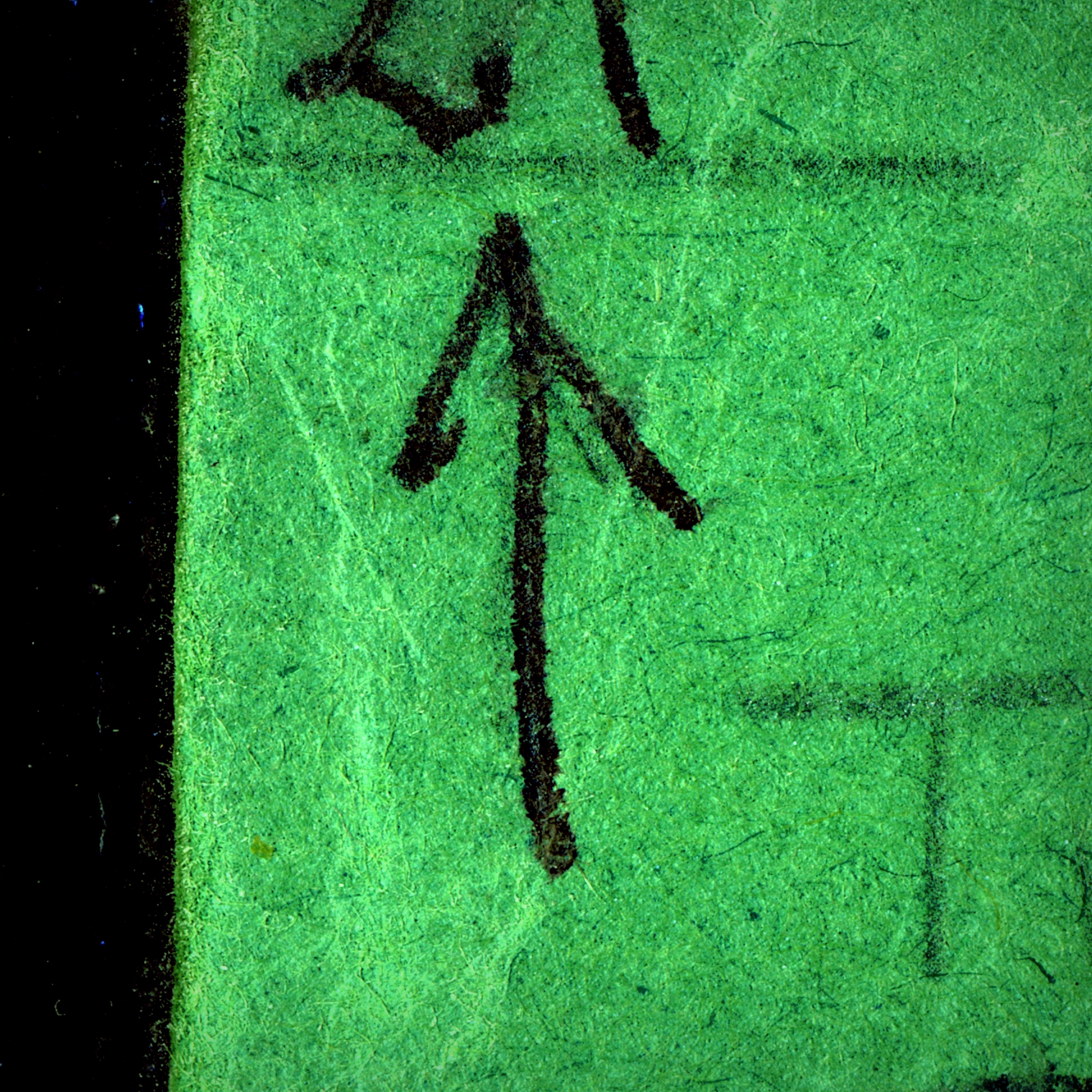 Alveolar dental: tongue along teeth, gums too. Stop and start the air flow. Let your voice stay out of it.
Alveolar dental: tongue along teeth, gums too. Stop and start the air flow. Let your voice stay out of it.
Carve an arrow. Point it to the stars.
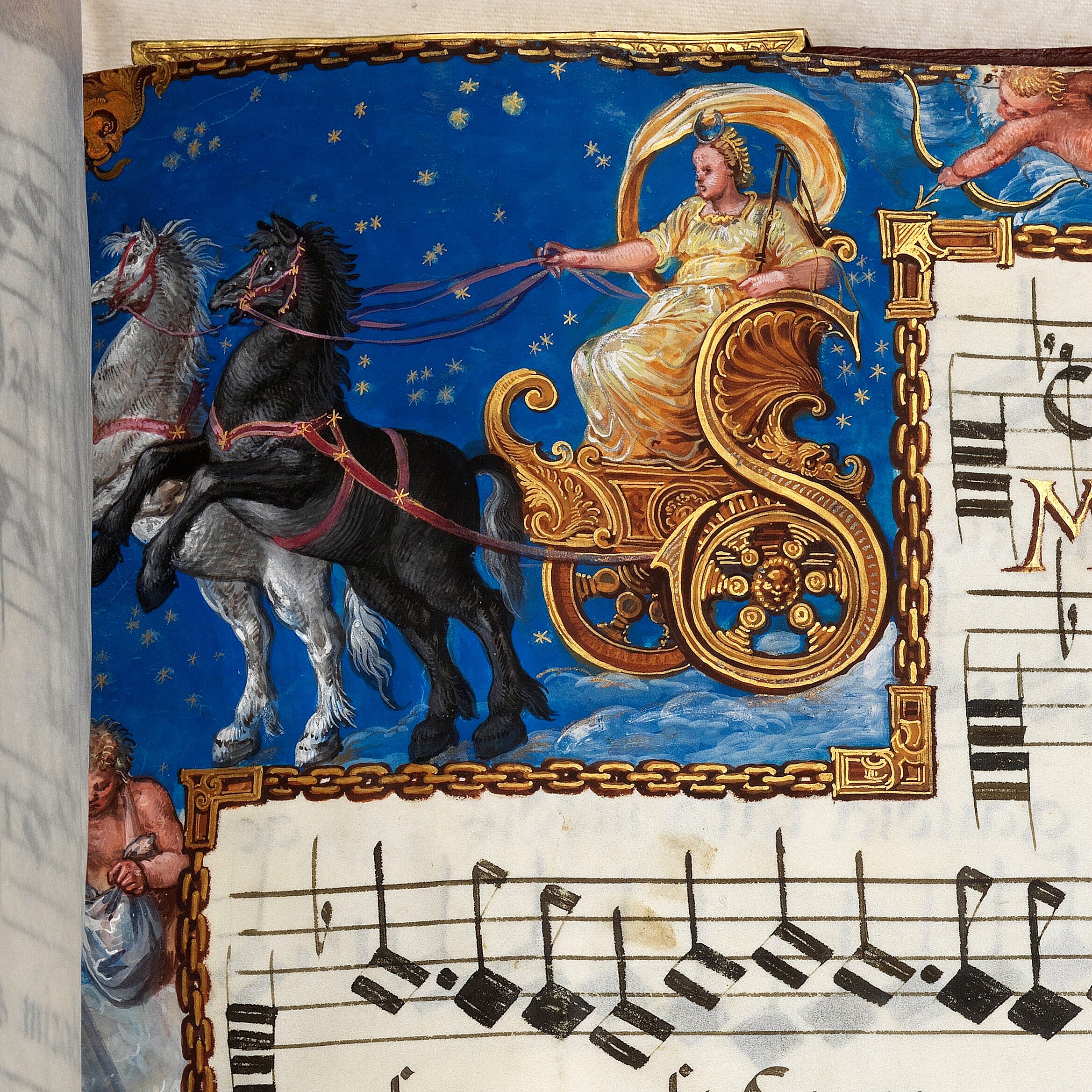
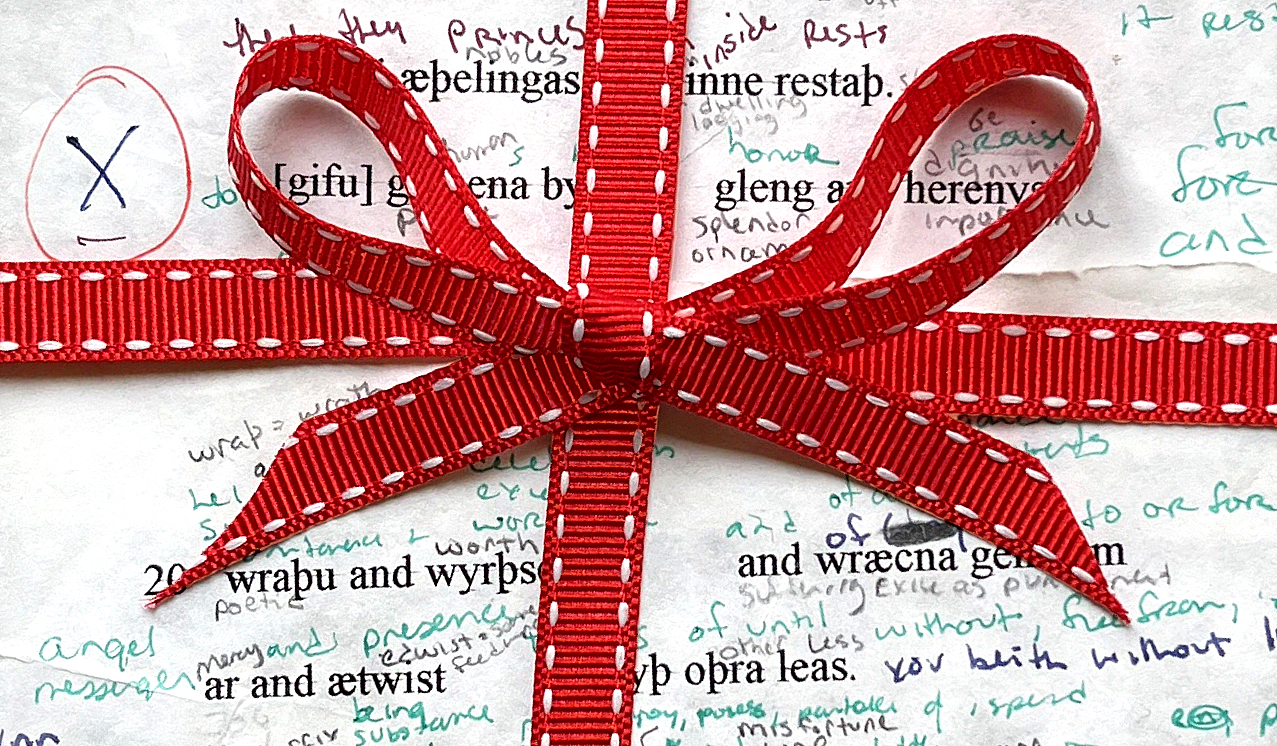 Gift giving was a big deal to the people of the Rune Poem. It was everything. They gave everything. It could be food or goods, but they loved ornament and anything old especially: gilded, edged with silver, blinding shiny, these were the best gifts, but it wasn’t about the bling so much as the message. What you give is what you’re worth and what you will be remembered for. Everybody wants to be worth something and everybody wants to be remembered, it’s the only permanent thing in a world where every single thing is temporary. We are each other’s immortality on earth through the memories we lay down in other people, it’s the only way to live, so by God you will remember me.
Gift giving was a big deal to the people of the Rune Poem. It was everything. They gave everything. It could be food or goods, but they loved ornament and anything old especially: gilded, edged with silver, blinding shiny, these were the best gifts, but it wasn’t about the bling so much as the message. What you give is what you’re worth and what you will be remembered for. Everybody wants to be worth something and everybody wants to be remembered, it’s the only permanent thing in a world where every single thing is temporary. We are each other’s immortality on earth through the memories we lay down in other people, it’s the only way to live, so by God you will remember me.
With the gift comes gleng, which means both ornament and honor, and as is typical in such cases, it’s the intangible half of this pair that’s worth more. It … More
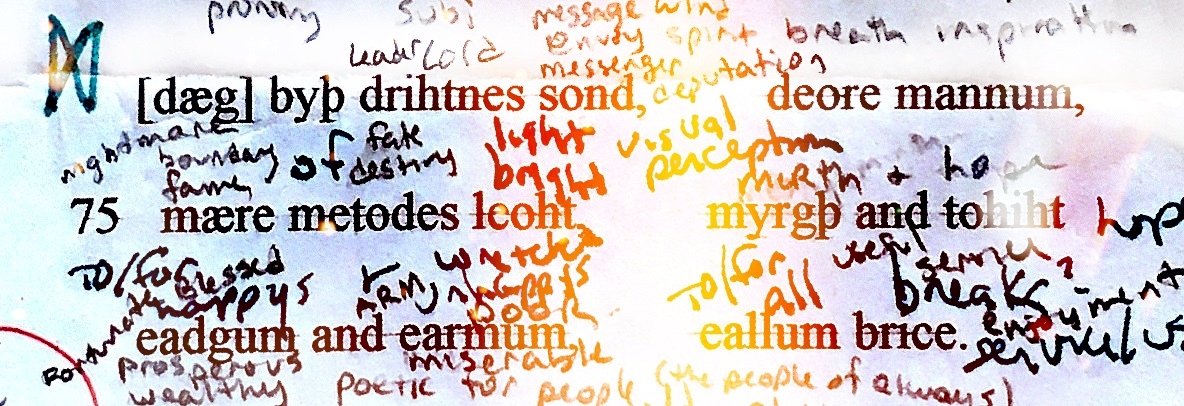 The word drihtnes appears twice in the rune poem, here and in stanza one, feoh, wealth. It means God, but in the sense of God as a lord, God the leader, the one in charge. God has other jobs: judge, executioner, advisor, muse, physician, daycare, security, human resources, accounting, project manager. All the jobs really, God is busy. Further down the CV God is also the metodes which sometimes gets translated as measurer. Metlic is something that is measurable, a metrap is a measuring rope for a field, or a sounding line to measure depth at sea. Metod is used in poetry mostly, where it means fate, destiny, and death, especially in earliest Old English, and the Rune Poem is early. God measures out our fate. God sizes us up and calculates our destiny.
The word drihtnes appears twice in the rune poem, here and in stanza one, feoh, wealth. It means God, but in the sense of God as a lord, God the leader, the one in charge. God has other jobs: judge, executioner, advisor, muse, physician, daycare, security, human resources, accounting, project manager. All the jobs really, God is busy. Further down the CV God is also the metodes which sometimes gets translated as measurer. Metlic is something that is measurable, a metrap is a measuring rope for a field, or a sounding line to measure depth at sea. Metod is used in poetry mostly, where it means fate, destiny, and death, especially in earliest Old English, and the Rune Poem is early. God measures out our fate. God sizes us up and calculates our destiny.
Drihtnes isn’t the only repetition going on here, we’ve seen tohiht (hope) and eadgum before. They were together in … More
